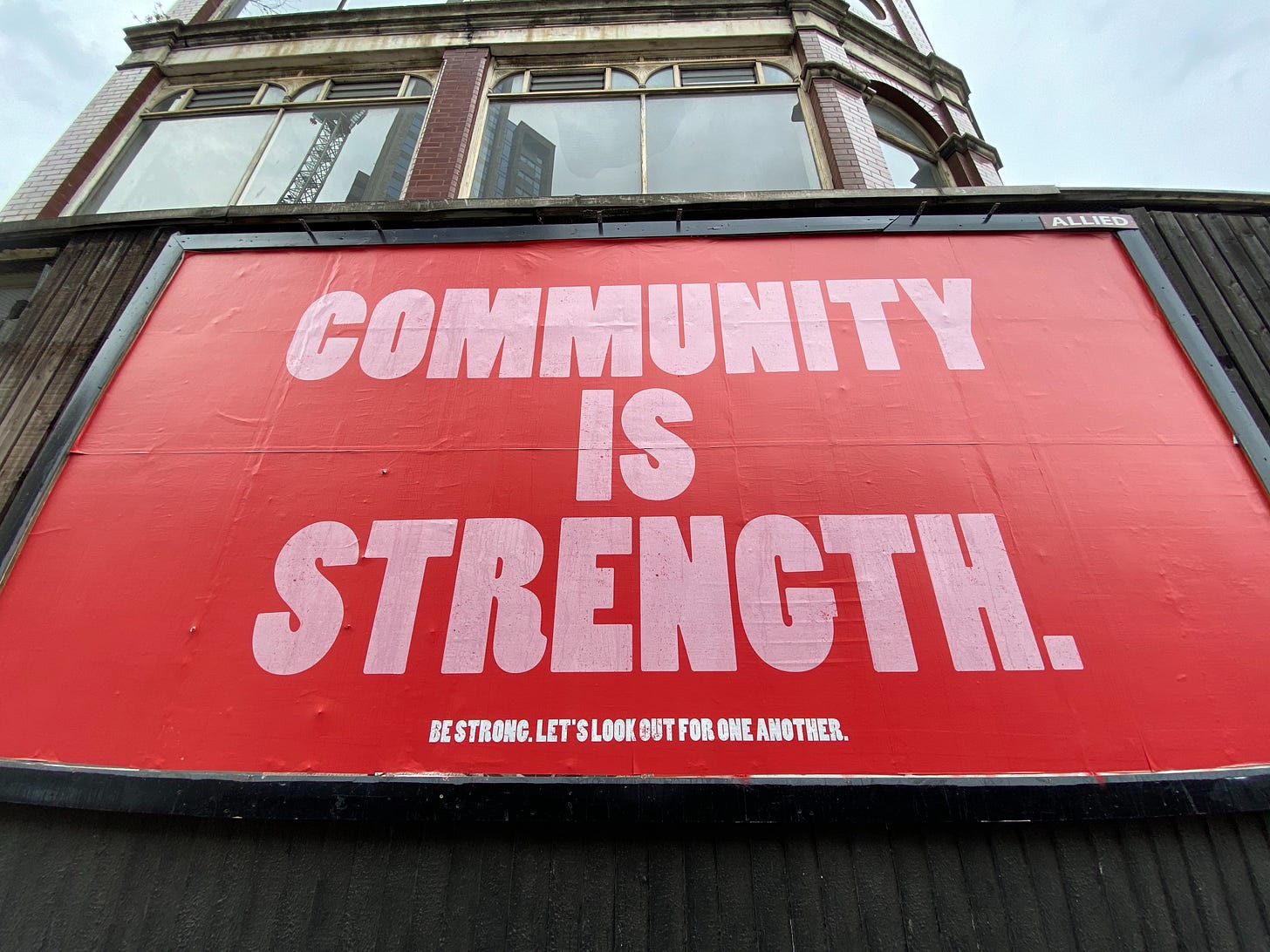should we be worried about the future of american democracy?
why I see more hope than terror for our common life

Over the past year I have been enjoying Princeton Seminary’s Future of American Democracy series. Facilitated by my friend and former professor Heath W. Carter, the series engages with a wide range of notable leaders including Anand Giridharadas, Russell Moore, Jane Coaston, Walter Kim, Sherrilyn Ifil, and many others.
A pressing concern at the heart of this series is how we should best imagine the future of American democracy. Amidst the polarization, division, hostility, and hatred that has been rehashed time and time again, is there any grounding for hope? Are we heading towards another Civil War in our lifetime? After all the disruption over the past decade, is national unity even achievable?
As a Christian, the relationship between promises of American democracy and the lived reality of its citizens has always been of great interest to me —especially as it concerns locating, identifying, and achieving an agreed-upon notion of the common good. I want to know how different communities take the ideals of our democracy and use them to different ends. I want to examine what notions of patriotism and national pride accomplish when they are applied across diverse contexts. Perhaps most importantly, I want to argue for the constructive and generative role that faith plays in our democratic systems and civic life. These are all topics that will continue to explore in this newsletter.
Beyond Princeton Seminary’s series, I have noticed more broadly that many questions about American democracy are framed around a common emotion: worry.
I think we must acknowledge that our democracy should never be taken for granted. The project of America, for all its faults, is exceptional. Its original aspiration to give a voice to the people rather than an elite cadre of decision-makers (again, in practice there are many faults), was radical in its time and remains so today.
Of course, present in this project will always be those who seek to manipulate the systems of our liberal democracy for their personal gain, whether that be wealth, power, prestige, influence, or the like. This, too, is evident in our society. We could spend countless words naming the systems of exploitation, dehumanization, manipulation, and heirachry that super-govern the democratic systems that are supposed to elevate the very ones who are exploited, dehumanized, manipulated, and placed at the bottom of our racial, gendered, and classist systems.
This is why I find it so lamentable that we live in a society where, if you want to climb the ranks of a certain political ideology, you have to live into the tropes and stereotypes that surround that party. Critical, partisan-defying visions are unwelcome when every election is framed as a war for the future of America.
This all may feel quite lofty and abstract. However, is important to understand how these systems permeate democracy at a local level. Democracy isn’t just located on the Hill or in our State Capitol. The liberal democratic process happens at our local town hall where local elected representatives are present to hear our collective voice on issues like funding libraries and museums, protecting and supporting local schools, conserving parks and green space, patching broken roads, addressing policies that discriminate against poor and marginalized communities, and more.
Democracy doesn’t just happen once every four years, it is an ongoing process of electing representatives and judges who are tasked with reflecting the people they serve. It is calling our public boards and committees to account when they enact harm or violence. It is celebrating the people in our communities who volunteer and serve at local pantries, gardens, and service centers.
This is the beautiful potential of democracy: there always remains the possibility of working together across lines of difference to achieve a shared goal. As the great philosopher Jeff Stout writes in Democracy and Tradition, democracy “inculcates certain habits of reasoning, certain attitudes toward deference and authority in political discussion, and love for certain goods and virtues, as well as a disposition to respond to certain types of actions, events, or persons with admiration, pity, or horror. This tradition is anything but empty.”
Democracy, as I understand Stout, is a means of participating in a common life. This does not necessitate agreement in all things, but rather a normative commitment to the good of our communities. This good is always in flux, which is exactly why these democratic processes exist and why we must participate in them.
Stout’s “pragmatic conception of democratic sociality” gives us a magnifying glass to examine democracy at a local level. Zooming in from an abstract, national-media level to a local one, we find communities that are far too complex to be reduced to a political platform. Every individual carries with them a context and experience through which they’ve been spiritually, ideologically, and emotionally formed.
When I take up this magnified lens, my mental and imaginative framework for American democracy becomes less centered on the question of worry and more focused on the great potential we have as a liberal democracy. This focus on potential does not detract from naming the evils and injustices present in our world. Instead, it gives all the more reason to name such systems and call our communities to something better.
Reading:
Maya Williams, Judas and Suicide (Game Over Books, 2023)
Andrew Whitehead, American Idolatry: How Christian Nationalism Betrays the Gospel and Threatens the Church (Baker, 2023).
“From the Ground Up,”
( )
Watching:
Black Mirror - Season 6 (Netflix)
Top Gun (Paramount+)
Midsommar (HBO Max)




